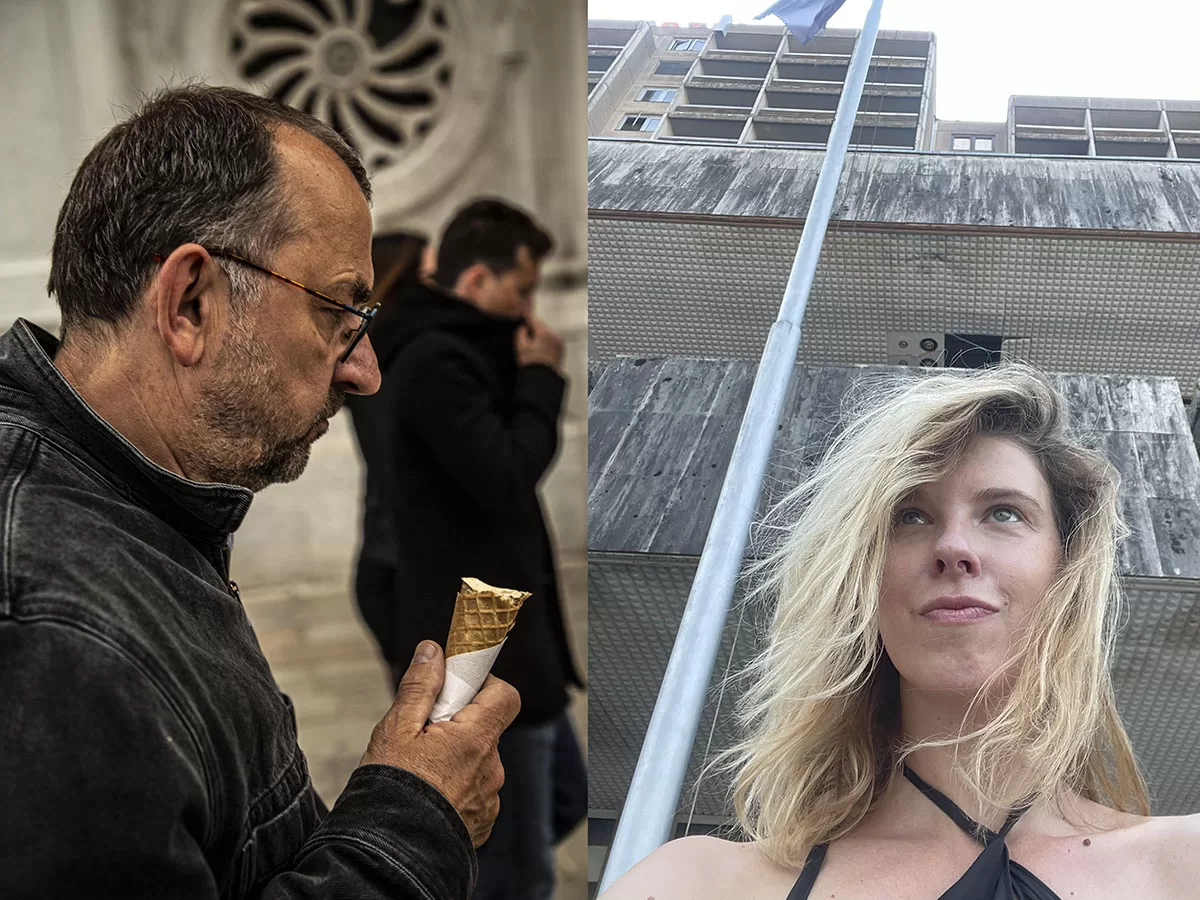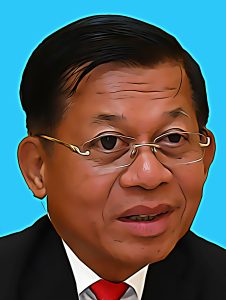3 May 2024 | Afghanistan, Burkina Faso, Burma, Ethiopia, Georgia, Hong Kong, News and features, Opinion, Ruth's blog
With the world absorbed in too much news some important stories in the world of freedom of expression can be lost. As we mark World Press Freedom Day it’s worth taking a moment to reflect on what is really happening around the world, away from the daily news agenda, from the ‘foreign agent’ bill in Georgia, to the restrictions being placed on journalists in Myanmar, Ethiopia, Hong Kong and of course Afghanistan.
It’s one of these unheard stories which I want to focus on this week. In the ongoing global struggle for press freedom, Burkina Faso finds itself embroiled in controversy once again. The recent suspension of foreign media outlets over their coverage of a damning report accusing the country’s army of civilian massacres underscores an appalling trend towards censorship and repression.
The report, released by Human Rights Watch (HRW), alleges that Burkina Faso’s military was responsible for the killing of 223 civilians in retaliation for their support of armed Islamists. This accusation has been vehemently denied by the military government, which seized power in a coup in 2022 with the promise of quelling the Islamist insurgency plaguing the nation.
But instead of choosing light and transparency the government has chosen the tool of the tyrant – censorship.
Foreign media outlets such as the BBC, Voice of America, and Deutsche Welle have been suspended, their websites blocked, and broadcasts halted for daring to report on HRW’s findings. This outrageous approach to silencing truth and dissent stifles the flow of information and undermines the fundamental principles of freedom of expression.
The joint statement from the governments of the United States and United Kingdom unequivocally condemns Burkina Faso’s actions, emphasising the importance of an unfettered press in fostering informed public discourse. As we mark World Press Freedom Day, these acts of censorship serve as a stark reminder of the critical role that media plays in holding power to account and safeguarding democracy.
The suspensions imposed by Burkina Faso’s Superior Council of Communication not only violate the rights of journalists but also deprive the Burkinabe people of access to independent and accurate news. By blocking HRW’s website and restricting media coverage of their report, the government effectively shields itself from scrutiny and accountability.
Such tactics are not unique to Burkina Faso; they are part of a broader global trend towards authoritarianism and censorship. Across the world, journalists face intimidation, harassment, and violence simply for doing their jobs. This week, the BBC World Service has revealed for the first time that 310 of its journalists are living in exile.
The international community must stand in solidarity with journalists and media organisations under attack. Advocating for freedom of expression is not only a matter of principle but also a practical necessity for the functioning of democratic societies. When the voices of the oppressed are silenced, tyranny reigns unchecked.
As the world marks World Press Freedom Day, let us reaffirm our commitment to defending the rights of journalists everywhere. In the face of adversity, their courage and resilience serve as a beacon of hope for a brighter and more just future.
18 Sep 2023 | Awards, Burma, Fellowship 2023, Iran, Russia, Ukraine
 Visual Rebellion (Myanmar)
Visual Rebellion (Myanmar)
Visual Rebellion was established in December 2021 as a platform to showcase and support the edited work of journalists, filmmakers and artists across post-coup Myanmar.
Launched on International Human Rights day on 1 December 2021 by a team led by Nadja Houben (Human Rights in the Picture foundation) and Laure Siegel (Mediapart), Visual Rebellion is a platform to showcase and support the edited work of journalists, filmmakers and artists across post-coup Myanmar. The activities of Visual Rebellion consist mainly of a free public information service on what is happening in Myanmar and in Thailand, continuing education for their members in English, Thai and Burmese language on a range of topics including cybersecurity, investigations, photojournalism, as well as coordinating the production of photo exhibitions, documentary screenings and book publications to finance their studies or visas.
 Toomaj Salehi (Iran)
Toomaj Salehi (Iran)
Toomaj Salehi is an Iranian rapper who has been singing about injustice and abuses by the Iranian authorities against civil society. In 2022, during the ongoing protests, he was arrested and charged for his work.
Salehi is a well-known Iranian hip-hop artist who has released protest songs including Mousehole, Turkmenchay and Pomegranate. Many of his songs explicitly reference the human rights situation in Iran, as well as threats to civil society. This has led him to being targeted by the authorities, long before his recent detention.
Following the release of Mousehole, Toomaj was arrested in the middle of the night on 12 September 2021. He was charged with "spreading propaganda against the state," but after more than a week he was released on bail. In January 2022, he was sentenced to six months in prison but was released on a suspended sentence in February. He later appeared in front of the prison where he had been imprisoned as part of a music video for a song written in memory of the victims of Aban.
Due to Toomaj’s support of the the protests that erupted after the killing of Mahsa Amini while in custody, he was violently taken into custody on 30 October 2022. In November, Iran's judiciary charged Salehi with a number of crimes, including spreading "corruption on Earth," a charge that could see him sentenced to death, as well as charges that each carry 1-10 years of imprisonment: “propaganda against the state,” “formation and management of illegal groups with the aim of undermining national security,” “collaboration with hostile governments,” and “spreading lies and inciting violence through cyberspace and encouraging individuals to commit violent acts.” While in detention, state media published a video purporting to show Salehi blindfolded, with bruising on his face, apologising for his words. Family members and human rights organisations have accused the authorities of torturing Salehi in prison to force him to make a false confession.
In July 2023, Toomaj was sentenced to over 6 years in prison for “corruption on earth”, as well as being banned from leaving Iran for 2 years. He is also banned from preparing, singing and producing music for 2 years. It has also been reported that he has been acquitted of two other charges - “insulting the supreme leader” & “communicating with hostile governments”.
Maria Lanko and Pavlo Makov (Ukraine)

In the midst of Russia’s unlawful invasion of Ukraine, the artist and curator worked to secure and transport Ukrainian art out of the warzone to ensure it could be protected and presented as part of the Venice Biennale.
Maria Lanko (right) was a co-curator of Kyiv-based gallery, The Naked Room, who was selected to co-curate the Ukrainian national pavilion at the 2022 Venice Biennale. The piece selected to represent Ukraine was entitled ”Fountain of Exhaustion” by artist Pavlo Makov (left), which is a kinetic sculpture consisting of 78 bronze funnels, arranged in the form of a pyramid. The water poured into the top funnel divides into two streams, feeding the funnels below. “Only a few drops reach the bottom, symbolizing exhaustion on a personal and global level,” the curators said in a press release.
On the evening of 24 February 2022, the day that Russia invaded Ukraine, Lanko packed the installation into her car and she drove, heading for Venice. The journey took three weeks, after taking a week just to make it to the border between Ukraine and Romania. Due to Maria’s decision, the piece was able to be presented at the Biennale to enable Ukrainian art to be seen in this unique and important showcase of international art. The importance of this was highlighted by Lanko in an interview with Deutsche Welle: “When the sheer right to existence for our culture is being challenged by Russia, it is crucial to demonstrate our achievements to the world".
27 Apr 2023 | Burma, FEATURED: Jemimah Steinfield
There is a common misconception, even held by media editors, that Myanmar is just a military country now and that’s the end of its story. And yet this couldn’t be further from the truth, says Oliver Slow. The journalist, who lived in Myanmar between 2012 and 2020, tells Index that people in Myanmar have "got a taste of democracy".
"They want to at least have a free choice in their matters, they don’t want to be controlled by this very violent military, they want to have leaders who they have chosen for themselves," he says.
Slow is talking to Index in light of his newly released book
Return of the Junta: Why Myanmar's military must go back to the barracks, an excerpt of which is featured below. For Slow, getting across this message is one of his hopes for the book. As he says, he wants everyone “to not give up on Myanmar, to understand that there is a vibrant future there."
Return of the Junta blends first-hand accounts with wider research into the background of the military. The result is an accessible, informed read on the 2021 coup d'état, and ultimately on this very complex country. While there are lighter moments in the book, it is not a sugar-coated retelling. Struggle for basic rights – nay survival – is a constant and unifying thread.
Early on Slow writes about how doctors have been a primary target of repression, persecuted in large part because they were central to the civil disobedience movement that formed in the immediate aftermath of the coup.
"That angered the regime and they decided essentially that they would punish doctors in many ways," Slow tells Index. "I remember from the time some pretty horrendous videos of soldiers just beating doctors in the streets." He says that when a third wave of Covid hit a few months after the coup the authorities would call doctors out to what they described as bad cases of Covid only to then arrest them.
Slow says "it speaks to the violence of the Myanmar military that doctors were specifically targeted" and shows "their lack of respect for international norms".
Such violence against doctors not only punishes them, it punishes the population more broadly. Two years on hospitals are in a parlous state in Myanmar. Doctors have fled.
"There is this feeling that they don’t want to work for any institution which aligns with the military," says Slow. A friend of Slow’s who recently visited a hospital in central Yangon described the conditions as “horrendous”.
Slow – who wouldn’t return to Myanmar right now because it would be too risky – finds it tougher and tougher to communicate with people there. "Most of my contacts have left because they’re journalists." Instead Slow relies on secure messaging apps to reach people on the ground.
According to Slow the main resistance is in the form of armed militia in the border areas. Many of the people in these militia were university students in 2021 and were enraged over the disappearance of their promising future. He says these militia are making some advances.
Of course it’s not just in the border regions that protest exists. On the anniversary of the coup this year Twitter was filled with images of a silent protest - streets of towns and cities across Myanmar were empty as people stayed at home to make a statement. There are also flash protests, very short protests where people “walk through the streets, do a photo, it goes on social media, they’re usually wearing a mask (for obvious reasons) and then they disband."
These anecdotes, combined with rising discontent over the military, give Slow hope.
"Can the military ever rule again in that country with any legitimacy? It’s a resounding no. Whether that means the resistance will win is a different matter as the military has made itself powerful over 50-60 years. The resistance is up against a pretty monumental machine," he says before adding:
"But I do see a time at some point in the future where the military will be defeated or removed from power.”
Excerpt from Return of the Junta
Despite the increased investment, even in pre-coup Myanmar life was still incredibly difficult for most teachers, especially those living in rural areas.
Myat Kyaw Thein is a secondary school teacher close to the town of Monywa, in central Myanmar.
“We have so many things to worry about as teachers, especially our safety and salary,” said Myat Kyaw Thein, who told me in an interview conducted before the coup that he earned the equivalent of about US$150 per month. “It’s not enough, especially when you compare it with other countries in Southeast Asia. No wonder so many people leave teaching to go to better paying jobs.”
“It’s a rotten salary, but whenever we raise it with authorities, they tell us it’s because of the low budget for education. Well, if you want to improve the education in this country, then increase the budget,” he said.
A similar story was told by a teacher in a remote village of Myanmar’s Nagaland. The teacher had worked at a school in her local village for more than ten years, and although the resources had improved in recent years, life was still difficult for her and her colleagues. She told me they often used their own money to provide things such as pens and books for their students.
“It’s difficult for us because we don’t have much salary, and sometimes have to use our family’s [money],” she said. “But then we want [the students] to be happy and to come to school. That’s why we provide these things for them.”
Even before the coup, it was clear that those tasked with overhauling Myanmar’s education system had an unenviable task ahead of them, including bringing together the dozens of different stakeholders – national and foreign – involved in such a monumental task and forming a cohesive strategy that pleases everyone.
Even what some may regard as the successes of the past decade in terms of reforms to education did not please everyone. For example, a recognition by the government about the need to switch from a teacher to a child-centred approach was a welcome step for those hoping to encourage more critical thinking, but parents who have only ever been exposed to the former their entire lives were understandably sceptical.
‘When a parent passes a school and doesn’t hear students chanting in unison what the teacher has written on the board, they think, ‘What’s going on in there? They aren’t learning’”, said an educator involved in the reforms.
Since the coup, however, much of the progress made over the last decade or so in Myanmar’s education sector has gone swiftly into reverse. With many teachers refusing to work under this junta, and parents not wanting to send their children to schools – either due to legitimate security concerns or because they don’t want them taught under this regime – the SAC has resorted to many of the tactics of past military juntas to try and portray an image of normalcy in schools and universities.
Like in 1962 and 1988 it has closed universities and fired teachers not supportive of the coup. Thousands of teachers have been sacked, and hundreds jailed, for participating in the civil disobedience movement against the junta. To fill these teaching ranks, the military-controlled education ministry has encouraged applicants with lower qualifications to apply for jobs, and even been accused of dressing up army wives and female members of pro-military organizations in teachers’ uniforms and transporting them to schools. Like under the SLORC government [the military State Law and Order Restoration Council that ruled the country between 1988 and 1997], teachers have been sent on month-long ‘refresher courses’ where they are urged to ‘pay attention to the preservation of Myanmar culture and traditions’ as well as ‘speak and behave respectfully and to be disciplined’, almost certainly euphemisms to discourage teachers from imbibing any form of revolutionary thinking into their students.
Before the coup, despite some bumps, the general trajectory of the education system in Myanmar was on a positive path. The changes were also made largely free of the military’s sphere of influence, an indication of the potential Myanmar has as a whole if the Tatmadaw’s own interests are not directly threatened.
Like almost everything in Myanmar, however, the 2021 coup has created considerable concerns about what happens next. If the current situation continues, and the military manages to maintain an albeit loose grip on power, it is the next generation of young people in Myanmar, and others beyond that, who will be the ones to suffer the most, through a lack of investment, or care, in their education, a lack of capabilities to think critically and problem solve, and a lack of skills to prepare them for the working world. This could well manifest, as it has in the past, of creating a general feeling among the population that Myanmar’s remarkable diversity is something to be feared, not celebrated.
Return of the Junta was published by Bloomsbury in January 2023. Click
here for more information on the book.
1 Dec 2022 | Burma, Tyrant of the Year 2022
 “As a child Aung San Suu Kyi was a celebrated heroine in my family home and Myanmar, an authoritarian regime determined to squash democracy. For a few years there was hope, although not for the Rohinghya community (thanks to Min Aung Hlaing), until the military coup of 2021,” says Index on Censorship CEO Ruth Anderson.
“As a child Aung San Suu Kyi was a celebrated heroine in my family home and Myanmar, an authoritarian regime determined to squash democracy. For a few years there was hope, although not for the Rohinghya community (thanks to Min Aung Hlaing), until the military coup of 2021,” says Index on Censorship CEO Ruth Anderson.
In February 2021 Min Aung Hlaing seized power - declaring himself commander-in-chief of Myanmar and consolidating all political power into the State Administration Council - a body which he also chairs. He has since sought to quash all dissent. Challenge is not tolerated, politicians have been arrested and imprisoned on spurious charges. Since the coup 2,530 civilians have been killed by the military, 13,000 people remain in detention and 128 political prisoners have been sentenced to death, according to the Assistance Association for Political Prisoners.
In a series of court cases since the military coup, former leader Aung Sun Suu Kyi has now been sentenced to 26 years’ imprisonment.
“These acts alone would warrant his crown as Tyrant of the Year but when you also consider his personal treatment of the Rohingya community then it's difficult to see how anyone else qualifies for the title,” says Anderson. “Even before the coup Min Aung Hlaing was accused of acts of genocide against the Rohinghya minority - over one million Rohingya have been forced to flee Myanmar, and available data suggests that over 24,000 Rohingya have been systematically murdered by the state, over 18,000 women and girls raped and 36,000 thrown into fires. All by direct order of Min Aung Hlaing. The UN has declared that he should be tried for war crimes at the Hague. This man is a tyrant by every definition.”

 Visual Rebellion (Myanmar)
Visual Rebellion (Myanmar) Toomaj Salehi (Iran)
Toomaj Salehi (Iran)
